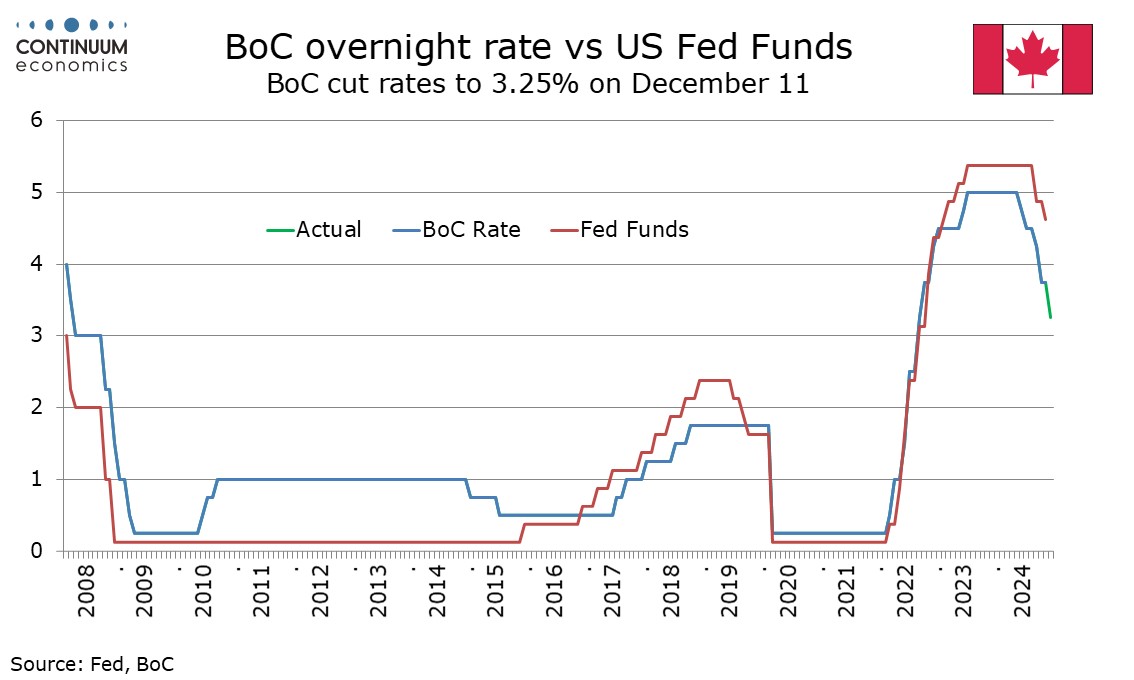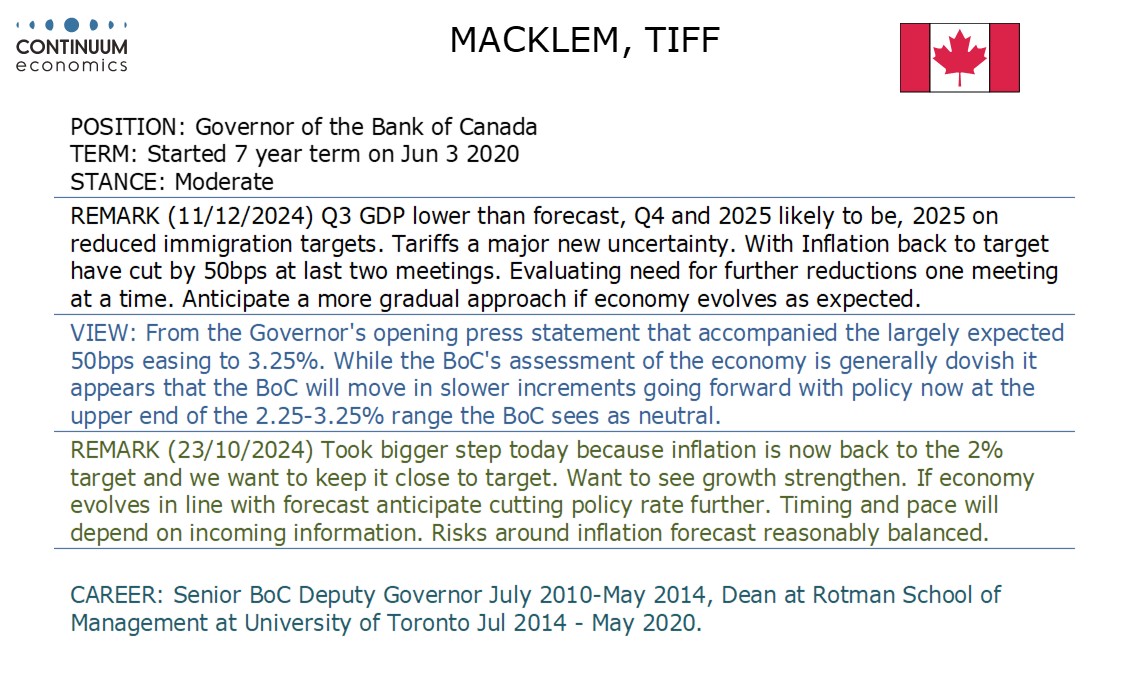Bank of Canada delivers a second straight 50bps easing but sees a more gradual approach in 2025
The Bank of Canada has delivered a second straight 50bps easing, taking the rate to 3.25%, as largely expected. This puts the rate at the upper end of the 2.25-3.25% range the BoC sees as neutral, and Governor Tiff Macklem stated he now anticipates a more gradual approach to policy. We expect three 25bps easings in 2025, though the threat of tariffs makes the outlook very uncertain.
The Bank of Canada’s statement for the most part reads fairly dovishly. While seeing the global economy as evolving largely as expected in October the BoC notes the 1.0% rise in Q3 GDP was weaker than projected, and adds recent data suggest Q4 will also underperform the BoC’s 2.0% forecast made in October. The BoC also expected 2025 GDP to be weaker than the 2.3% Q4/Q4 October forecast due to a reduced immigration target. The BoC did not mention that October CPI was slightly higher than expected, stating it has been near the 2% target since the summer and is expected to remain so. A brief dip in CPI to 1.5% is expected during a GST holiday that will run from December 14 through February 15, but the BoC will look through that.

The statement states that the BoC will be evaluating the need for further reductions one meeting at a time, no longer stating it expects further rate cuts but making it clear that the debate is whether to ease further with tightening not on the agenda. However, in a press conference opening statement that largely echoed the BoC’s statement, Governor Macklem stated that with the policy rate now substantially lower, a more gradual approach to policy was anticipated if the economy evolves broadly as expected. We continue to expect two 25bps moves in Q1 of 2025, and one 25bps move in Q2, taking the rate to 2.50%, slightly below the midpoint of the neutral range. We expect the FOMC to ease by 25bps next week, that falling short of the latest BoC move, and by 75bps in 2025, so the currently large differential between the FOMC and BoC would then remain reasonably stable.

Both the statement and Governor Macklem noted the treat of US tariffs as an additional uncertainty, described as major by Macklem who added no one knows how this will play out in the months ahead. The tariffs threatened by US president-elect Donald Trump would if fully implemented probably be sufficient to push Canada into recession, but a weaker CAD could lift inflation, as could any Canadian retaliation against imports from the US. On balance we would expect such a scenario to make the BoC more dovish. We doubt that Trump’s threats will be implemented in full, but the threat is already a weight on the Canadian economy.